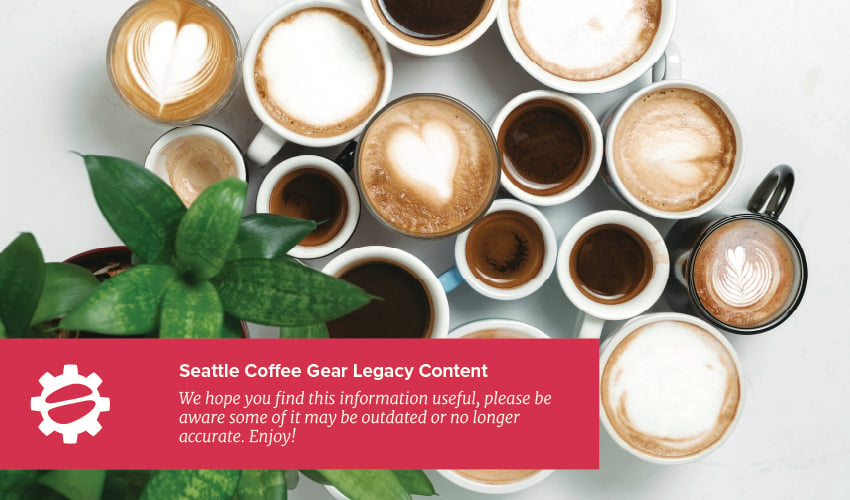Whether you’re sipping on a delicious cup of Velton’s Single Origin Mexico Nayarita, or savoring Zoka’s Espresso Palladino, your beans have started their journey hundreds or thousands of miles away from you (at least if you live in Seattle). Roasters source beans for their signature blends or single origins in one of two ways: They either buy green (unroasted) beans from importers, or they visit farms around the world to purchase beans directly from coffee producers. Coffee is one of the most highly valued products in world trade, however it’s also an incredibly labor intensive crop with a yield at the mercy of weather conditions and a price dictated by market forces. An abundance of coffee in the global market drives prices down, while smaller harvests can demand higher prices. It’s a tricky business since it can take up to four years for a coffee plant to yield fruit, making it difficult for producers to respond quickly to a fluctuating market. In 2001, a global oversupply of coffee depressed prices worldwide to an all time low of 45 US cents a pound, and overnight thousands of farmers were forced out of business. It was an intense reminder of how vulnerable these farmers are to price fluctuations at a global scale. The Fair Trade program was established to set a floor price for green beans on the global market (a minimum of $1.40/lb for unwashed Arabica, or the market price if higher, plus 20 cent premium for community development) and promote sustainable practices for commodity producers around the world. The participants must adhere to a series of standards such as participation in a co-op and investment of at least 5 cents in quality or productivity investments, and in exchange they become Fair Trade certified (identified by a black and white logo of a man with outstretched arms). Fair Trade Certification is monitored by an independent company called FLO-CERT to ensure that producers are following the outlined guidelines. How does this impact you? As a consumer you can breathe a little easier knowing that farmers were paid a fair price for the beans in your hopper. It's important to note that Fair Trade has faced some criticism in recent years because it requires co-op participation (excluding some producers that want to remain independent) and some claim there is little evidence of community investment. Direct trade takes a slightly different approach to sourcing, whereby roasters are traveling to and purchasing directly from coffee producers across the world. This gives roasters access to smaller growers that don’t want to participate in a co-op (and are thereby excluded from Fair Trade), and gives them more control over quality, consistency and visibility into immediate social and environmental concerns. While direct trade has become increasingly popular in recent years, there are no uniform standards that everyone adheres to. As a consumer, this means you are trusting your roaster to conduct business in an ethical manner. Some roasters like Intelligentsia and Counter Culture have established their own direct trade standards to promote visibility and accountability for their purchasing practices. Counter Culture even partners with Quality Certification Services, a 3rd party organization that verifies their own guiding principles. We are extremely fortunate to work with a number of roasters in the Seattle area who source directly; one of which, Caffe Ladro, recently traveled to Central America to source beans, visiting Nicaragua, El Salvador, Honduras and Costa Rica. By purchasing directly from producers, not only can they find the highest quality beans, but they can give back to the communities they work with in a tangible way. This year, Ladro will launch a program to donate $1 of each bag of Natamaya coffee to build a soccer field. Since direct trade relationships have the potential to create long-lasting and mutually beneficial relationships with producers around the world, the business practice itself is sustainable and more transparent. That means that even those of us who are at the end of the line, enjoying delicious cups of coffee, can better understand where this product comes from and contribute to a positive community impact with every sip ... and who wouldn't dig that?
Final Days for Diletta Deals | Up to $300 Off →
Superauto Machine Sale | Up to $350 Off →
Cart updated ()


